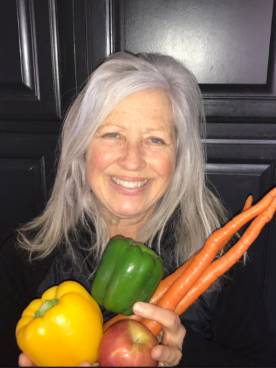IPE Profile

Sandy Pernecky
Sandy Pernecky
Brief professional description
I've been a registered dietitian (RDN) for 30 years, and advanced my nutrition knowledge with a MS from EMU in 2004, along with becoming an EMU lecturer that same year. I was recently appointed co-director of Dietetics and Human Nutrition. My main interest is community-based dietetics and nutrition and I teach a community nutrition experience course each fall.
Initially as an RDN, I was in mostly clinical and community-based positions. As a newly graduated dietitian, I know I would have benefited greatly from understanding more about the professionals I'd be working with, side-by-side, in addition to understanding some of their unique jargon and skills. This said, I am understandably excited for our CHHS students as a whole and dietetic students specifically, as they have the opportunity to learn through IPE events at EMU, to develop their interprofessional skills even before they've graduated.
How and why did you get involved?
I became involved in IPE because of my enthusiasm regarding the newly evolving Swoops Food Pantry (Fall 2015). Through conversations with Dr. Lynn Nybell initially, then Julie Harkema and Haley Moraniec, we were able to grow the idea of a dietetics/social work collaboration with support from Dr. Tana Bridge (SW) and Dr. Heather Wiese (DTC). Dr. Bridge and Dr. Wiese were already IPE Scholars at that time, and provided mentorship in reviewing and guiding the funded IPE mini grant: College Student Food Insecurity: Research, Discovery and Action (CSFIRDA). It helps that I have a lifelong love of learning and am not afraid to explore areas about which I know little to nothing. I applied for, and was accepted into the IPE Scholars Program 2016, and was able to form a collaboration with Dr. Deborah Collins-Boehler (NURS), that involved nursing and dietetic students planning a health and nutrition class together and then education seniors at a nearby independent living facility. I continue to be involved in IPE endeavors, to further enhance our dietetics and other CHHS students' experiences.
What do you believe are the benefits?
Learning to communicate across the aisle (between professions) and becoming educated regarding scope of practice is key. With IPE, students learn that there are relevant areas for each health care profession and also start to understand that there may be some overlap between these professions. Knowing that there are specialized professionals available, understanding more about what they do, and knowing when to call on them for their knowledge and skills is a substantial benefit. By focusing on our own professions' skills and embracing the idea that through communication we can work productively with other health care professionals, our students are provided with a major "aha" moment. As a bonus, trusting relationships and friendships may form.
What has been the most memorable experience or highlight of teaching IPE so far?
My favorite IPE experience was the mini-grant funded IPE proposal: College Student Food Insecurity: Research, Discovery, and Action, which included the planning and execution of: Nutrition on a Budget and Food Insecurity Facts and Myths ~ a dietetic/social work student collaborative presentation; a Local Food Justice Bus Tour; and a qualitative and quantitative study of Food Pantry customers. There were so many "moving pieces", and opportunities to learn! I honestly felt that I learned as much as our students.

